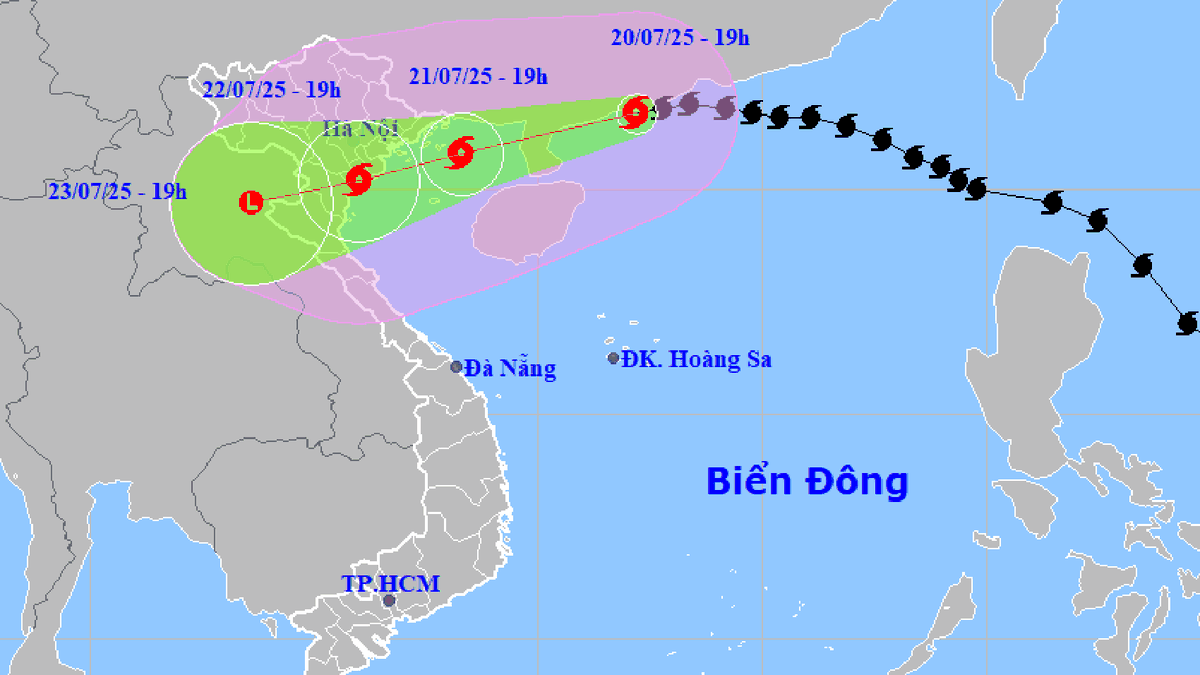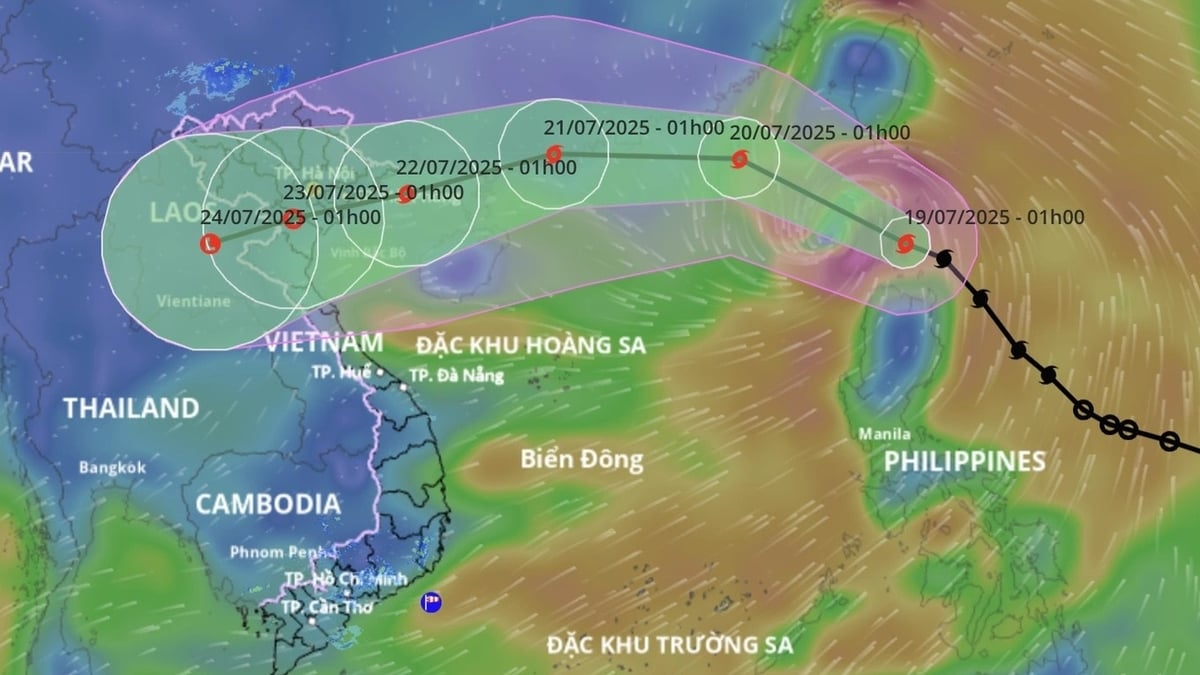 |
| UNCTAD assesses that Brazil, China, India, Japan, Mexico, Russia and the United States are the economies with good resilience in 2023. (Source: businesslive.com.za) |
World economy
The global economy is at a "crossroads"
The United Nations Conference on Trade and Development (UNCTAD) forecasts the world economy to grow by 2.4% in 2023, down from 3% in 2022, with little sign of recovery in 2024.
In its Trade and Development Report 2023, UNCTAD warns of a global economic slowdown, with growth starting to slow in most regions from 2022 and only a handful of countries able to buck the trend. The global economy is at a “crossroads” with diverging growth paths, rising inequality, shrinking markets and mounting public debt burdens clouding the economic outlook, the report says.
Globally, the economic recovery from the Covid-19 pandemic is uneven. While some economies such as Brazil, China, India, Japan, Mexico, Russia and the United States are resilient in 2023, others face serious challenges.
Against a backdrop of slowing growth and lack of policy coordination, this divergence raises concerns about the path forward for the global economy.
The report calls for structural reforms of the global financial system, more realistic policies to contain inflation, tackle inequality and public debt, and strengthen oversight of key markets. UNCTAD also urges ensuring transparent and well-regulated markets for a fairer global trading system.
The report also pointed out that among the Group of 20 leading developed and emerging economies (G20), only Brazil, China, Japan, Mexico and Russia are expected to have improved economic growth in 2023. Notably, despite many difficulties and challenges, the Russian economy is forecast to achieve Gross Domestic Product (GDP) growth of 2.2% and 2% for 2023 and 2024, respectively . (VNA)
US economy
* According to US government data released on September 29, key inflation data used by the US Federal Reserve (Fed) as a basis for interest rate decisions increased again in August 2023 due to rising energy prices.
The US Commerce Department released data showing that the personal consumption expenditures (PCE) price index in August 2023 increased 3.5% compared to the same period last year, after increasing 3.4% in July 2023. Compared to July 2023, the PCE index increased 0.4%, in line with the average forecast of economists participating in the Briefing.com survey. (AFP)
* In the US, inflation is down, employment is up and consumers continue to spend during the summer. However, Bloomberg Economics warns that the risk of a US recession could soon occur.
With the auto workers’ strike continuing, student loan repayments resuming and the threat of a government shutdown looming, Bloomberg predicts GDP growth will fall by at least 1 percentage point in the fourth quarter of 2023. (Bloomberg)
Chinese Economy
* China's economy received more positive news when the latest report released by the National Bureau of Statistics (NBS) on September 30 showed that factory activity in the country increased for the first time in 6 months.
The manufacturing Purchasing Managers' Index (PMI) rose to 50.2 in September from 49.7 in August, above the 50-point threshold that separates contraction and growth in manufacturing activity, the NBS said.
Meanwhile, the non-manufacturing PMI also rose to 51.7 from 51.0 in August. The composite PMI rose to 52.0 from 51.3 in September . (Reuters)
* China on October 4 expressed dissatisfaction with the European Union's (EU) request to join consultations at "very short notice" on the bloc's investigation into electric vehicle subsidies.
China's Ministry of Commerce said the investigation lacked sufficient evidence and did not comply with World Trade Organization (WTO) regulations.
Earlier, the EU officially launched the investigation with an announcement on the bloc's official website, saying that China had been invited for consultations, although no time frame was given. (TTXVN)
European Economy
* According to preliminary data released by the European Union's statistics agency (Eurostat) on September 29, inflation in the Eurozone in September 2023 fell to its lowest level in nearly two years , showing that the European Central Bank's (ECB) policy of raising interest rates is having an effect on controlling prices, despite affecting economic growth.
Eurozone consumer prices rose 4.3% in September 2023, the slowest increase since October 2021, compared with 5.2% in the previous month. Excluding food, energy, alcohol and tobacco prices, inflation in the region fell to 4.5% from 5.3%, the sharpest decline since August 2020. (Reuters)
* EU house prices recorded their first annual fall in nearly a decade, despite a slight recovery in the three months to June 2023. The EU residential property market rebounded in the second quarter of 2023 as house prices rose by 0.3% despite rising interest rates, high inflation and weak economic growth.
However, house prices in the EU have fallen in the previous two quarters, as rising mortgage rates and rising living costs deter many Europeans from buying. This has led to a 1.1% year-on-year fall in EU house prices and a 1.7% fall in the Eurozone – the first annual decline since 2014. (FT)
* The Netherlands on October 1 ended natural gas production from the Groningen field, Europe's largest gas field, which has been in operation since 1963. The field's 60-year operation has caused local earthquakes for decades and is at risk of continuing .
However, authorities are keeping the last 11 mining units running for another year in case of a "very harsh" winter and prolonged geopolitical tensions, before shutting them down completely. (TTXVN)
* Russian oil exports to India rose 15% in September 2023 from a seven-month low recorded in August 2023 due to ample supplies and falling prices, according to data firm Kpler SAS.
India’s oil imports from Russia reached 1.78 million barrels a day last month. India mainly buys Russia’s Urals crude, which is delivered at a discount of about $4 a barrel to Brent, making it more attractive than futures supplies from the Middle East. (Bloomberg)
* Ukrainian Minister of Agricultural Policy Mykola Solskyi on October 2 discussed online with his Bulgarian counterpart Kyryl Vatev technical issues in exporting Ukrainian agricultural products to Bulgaria .
Accordingly, Bulgaria is considering accepting Ukraine's action plan, which has been submitted to the European Commission (EC), regarding the supply of agricultural products. The two sides have agreed on the technical details of the export procedure to Bulgaria and will discuss the results of this activity at the next meeting at the end of October. (VNA)
* On October 2, Turkish Energy Minister Alparslan Bayraktar said that the country will resume operations of the crude oil pipeline from Iraq , which has been suspended for about 6 months. The pipeline is expected to supply about 500,000 barrels of oil to the global oil market. (TTXVN)
* According to the results of the PMI HCOB survey conducted by the US credit rating agency S&P Global, Germany's manufacturing sector continued to decline in the third quarter of 2023, recording the sharpest decline since May 2020. The deepening pessimism of goods producers in the third quarter of 2023 led to job cuts, while weak demand led to lower input and output costs. (THX)
Japanese and Korean Economy
* Recently, the Japanese Ministry of Industry said that the government will provide an additional subsidy of up to 192 billion Yen (1.3 billion USD) for the Hiroshima factory of the American chip manufacturer Micron Technology.
The move, along with a previously announced aid of up to 46.5 billion yen, contributes to Japan's efforts to secure stable chip supplies at a time when rising tensions between the United States and China increasingly threaten the country's economic security. (Kyodo)
* Speaking at the Public-Private Partnership Forum to Expand Domestic Investment held at the Prime Minister's Office on October 4, Japanese Prime Minister Kishida Fumio emphasized that the government will create a revolution to increase investment attraction with the goal of reaching 115,000 billion Yen (770 billion USD) by 2027.
The head of the Japanese government said that during “Japan Week” (September 25-October 6), thousands of investors from around the world will come to the Land of the Rising Sun, showing that the international community is increasingly interested in the development trend of this country. (VNA)
* Foreign direct investment (FDI) commitments to South Korea in the January-September period this year rose 11.3 percent from a year earlier to an all-time high, driven by increased investment in chips, batteries and other high-tech sectors, the Ministry of Trade, Industry and Energy said on October 4.
South Korea received FDI commitments worth $23.95 billion in the January-September period, up from $21.52 billion in the same period last year. The actual investment received also rose 20.2 percent on-year to a record high of $13.92 billion. (Yonhap)
* South Korean Deputy Prime Minister and Finance Minister Choo Kyung-ho said on October 5 that the government is ready to take necessary measures when financial markets experience increased volatility, stemming from rising bond yields in the US.
Choo's statement came after the South Korean stock market fell to a six-month low on October 4 as investors worried about the possibility of the US continuing to tighten monetary policy. Also on October 4, the South Korean won fell against the US dollar, hitting an 11-month low. (TTXVN)
 |
| ASEAN and Canada aim to conclude negotiations on the ASEAN-Canada Free Trade Agreement (ACAFTA) by 2025. (Source: TTDN) |
ASEAN Economy and Emerging Economies
* A study by Nikkei Asia shows that the market value of technology companies and electronics suppliers in Southeast Asia has increased since the Covid-19 pandemic broke out, while the region's pillar businesses have declined.
Accordingly, about 3,700 non-financial companies listed on Southeast Asian exchanges had a total market capitalization of about 1,630 billion USD as of the end of July 2023, up 12% compared to the end of December 2019 and up 27% compared to the end of 2013.
These businesses are concentrated in six major economies including Thailand, Indonesia, the Philippines, Singapore, Malaysia and Vietnam . (Vietnam News Agency)
* ASEAN and Canada aim to conclude negotiations on the ASEAN-Canada Free Trade Agreement (ACAFTA) by 2025 and last week took a new step towards that goal. ACAFTA will become ASEAN's first FTA with the Americas.
ASEAN and Canada launched ACAFTA negotiations in 2021. ASEAN was Canada's fourth largest goods trading partner in 2021. Bilateral goods trade reached US$40.7 billion in 2022. (TTXVN)
* Philippine President Ferdinand Marcos on October 4 lifted the ceiling on rice prices . The move came just weeks after the government introduced measures to control rice prices to support poor households.
President Marcos, who is also the agriculture minister, stressed that this was the "right time" to lift the price ceiling because the government had enough rice to distribute to the people.
In another development, Malaysian Minister of Agriculture and Food Security Mohamad Sabu said the ministry will implement four drastic intervention measures to ease people's concerns about the high price of imported rice and the high demand for domestic rice. (Vietnam News Agency)
Source



























![[Photo] National Assembly Chairman Tran Thanh Man visits Vietnamese Heroic Mother Ta Thi Tran](https://vphoto.vietnam.vn/thumb/1200x675/vietnam/resource/IMAGE/2025/7/20/765c0bd057dd44ad83ab89fe0255b783)





































































Comment (0)